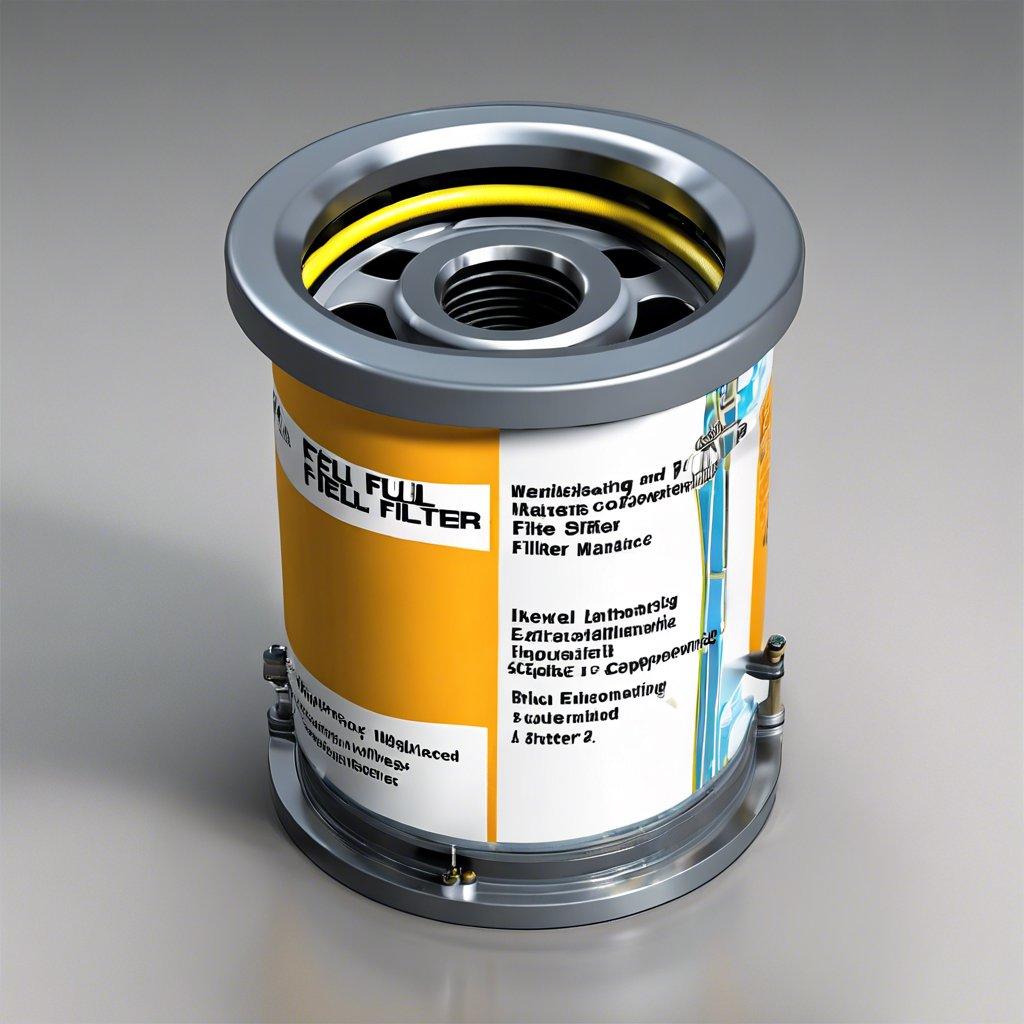Maximizing Engine Health: The Role of the Fuel Filter
Maximizing Engine Health: The Role of the Fuel Filter. The fuel filter is a crucial component in ensuring the health and longevity of an engine. It plays a vital role in protecting the engine from harmful contaminants that can cause damage and reduce performance. By regularly maintaining and replacing the fuel filter, you can maximize engine health and prevent costly repairs down the line.
The primary function of the fuel filter is to remove impurities such as dirt, rust, and other debris from the fuel before it reaches the engine. These contaminants can clog fuel injectors, restrict fuel flow, and cause engine misfires or stalling. By trapping these particles, the fuel filter helps to maintain a clean and efficient fuel system, ensuring optimal engine performance.
Over time, the fuel filter can become clogged with debris and lose its effectiveness. This can lead to reduced fuel flow, decreased engine power, and increased fuel consumption. It is important to regularly inspect and replace the fuel filter according to the manufacturer’s recommendations to prevent these issues and keep your engine running smoothly.
In addition to protecting the engine from contaminants, the fuel filter also plays a role in maintaining the overall health of the fuel system. By removing impurities from the fuel, the filter helps to prevent corrosion and damage to fuel system components. This can extend the life of the fuel system and reduce the risk of costly repairs.
Overall, the fuel filter is a critical component in maximizing engine health and performance. By regularly maintaining and replacing the fuel filter, you can ensure that your engine runs smoothly, efficiently, and reliably. Don’t overlook the importance of this small but essential part in keeping your engine in top condition.
The Role of the Fuel Filter in Maximizing Engine Health
The fuel filter is a vital component in the overall health and performance of an engine. Its primary function is to remove impurities and contaminants from the fuel before it reaches the engine, thereby protecting it from potential damage and ensuring optimal performance. By understanding the importance of the fuel filter and maintaining it properly, you can extend the life of your engine and prevent costly repairs.
One of the key roles of the fuel filter is to trap dirt, rust, and other debris that can be present in the fuel. These contaminants can clog fuel injectors, restrict fuel flow, and lead to engine misfires or stalling. By effectively filtering out these particles, the fuel filter helps to maintain a clean and efficient fuel system, allowing the engine to operate smoothly and efficiently.
Over time, however, the fuel filter can become clogged with debris and lose its effectiveness. This can result in reduced fuel flow, decreased engine power, and increased fuel consumption. To prevent these issues and ensure the continued health of your engine, it is important to regularly inspect and replace the fuel filter according to the manufacturer’s recommendations.
In addition to protecting the engine from contaminants, the fuel filter also plays a crucial role in maintaining the overall health of the fuel system. By removing impurities from the fuel, the filter helps to prevent corrosion and damage to fuel system components. This not only extends the life of the fuel system but also reduces the risk of costly repairs in the future.
In conclusion, the fuel filter is a critical component in maximizing engine health and performance. By understanding its importance and taking proper care of it, you can ensure that your engine runs smoothly, efficiently, and reliably. Don’t underestimate the impact of this small but essential part in keeping your engine in top condition. Regular maintenance and replacement of the fuel filter are key steps in ensuring the longevity and performance of your engine.




Post Comment